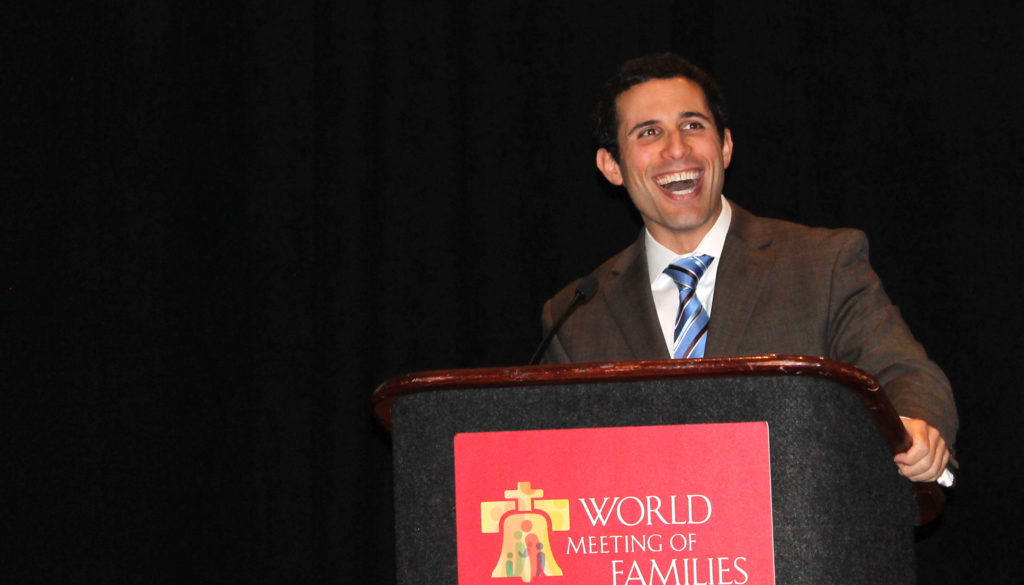

PHILADELPHIA — Dr. Daniel Mark, a professor of political science at Villanova University, stood before one of the more crowded breakout sessions at the World Meeting of Families.
“Home Improvement: Forgiveness and Family Life” drew a couple hundred participants eager to learn about a thorny but essential topic.
An Orthodox Jew, Mark quoted liberally from both the Old and New Testaments and offered tidbits from the preparatory catechesis for the World Meeting of Families.
“Forgiveness and family life are hard,” Mark said. “This is inevitable as we are human beings. Far greater people than we have struggled.” He went on to describe the first book of the Bible as a “woeful tale of family dysfunction.” From Cain’s murder of Abel all the way to the treachery of Joseph’s brothers and beyond, family relationships are often the source of conflict.
As a professor of political science, Mark pointed out that societies are based on people asserting their rights and the fundamental virtue of justice.
“We are all born with God-given rights, natural rights. We have laws to protect those rights in society and it is government’s responsibility to step in when we are unfairly deprived of life, liberty or property,” Mark said.
Families, however, are different, for it is there that the virtue of mercy must reign, he said. In a family, burdens are rarely if ever distributed equally. “Family relationships are not healthy if they are based on who owes what to whom … there can be no family life if everyone stands on his rights all the time,” Mark said.
He pointed to the sacrifice of Christ in dying on the cross as the model for family life. It is this self-sacrificing love and reconciliation that are essential to harmony in the family. “Each of us must ask ourselves, ‘How am I being called to seek reconciliation at my own expense?’
“The rabbis of the Talmud say we should imitate God’s merciful ways,” Mark said. “God forgives us even though we don’t deserve it. That kind of forgiveness is needed in the family.”
Asking for forgiveness is not easy, he said, because it requires admitting we’ve done something wrong. It’s when those who have hurt us don’t believe they’ve done something wrong that we will probably find it difficult to forgive.
Quoting from Ephesians, Mark pointed to the example of Christ who bore our sins and offered forgiveness even though He had never sinned.
“To be clear, I’m not suggesting pursuing reconciliation when it entails turning a blind eye to wrongdoing,” Mark said. “Forgiving does not come at the expense of doing what’s right.
Quoting Archbishop Charles J. Chaput, OFM Cap., of Philadelphia, he said that God calls us to be good, even if it offends our brothers and sisters. Being nice is not a virtue. Love and telling the truth are intertwined.
At the close of his remarks, a number of participants spoke of the deep wounds in their own families. One woman said that her faith had come between her and her adult children. She wondered how they could be reconciled and if she could perhaps write a letter to express her feelings.
“Don’t underestimate the power of a handwritten letter,” Mark said. “Before you bring God to them, bring yourself, just your love as a mother wanting to have a relationship with them.”
Follow Joyce Coronel on Twitter at @JoyceCoronel.





